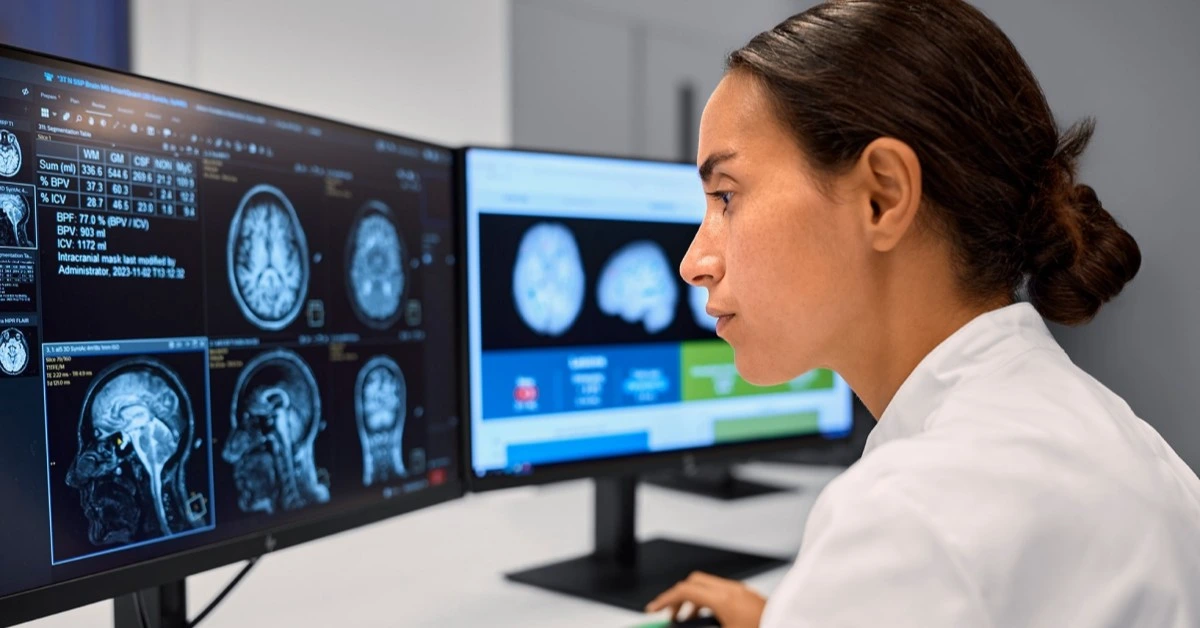
NETHERLANDS – Philips and icometrix have partnered to integrate advanced neuroimaging and artificial intelligence (AI) technologies.
The collaboration aims to create an end-to-end solution that enhances the diagnosis and management of neurological conditions such as Alzheimer’s disease and multiple sclerosis (MS).
The partnership aims to streamline MRI scanning processes by automating image acquisition, interpretation, and reporting, addressing challenges like increasing caseloads and staff shortages in radiology departments.
The new AI-powered product will debut at the Radiological Society of North America (RSNA) 2024 annual meeting from December 1 to 4.
icometrix’s AI-enabled software, including its icobrain platform, will be incorporated into Philips’ advanced BlueSeal MRI scanners using the company’s Smart Reading and AI-based SmartSpeed capabilities.
The technology will also be integrated into Philips’ cloud-based healthcare informatics platform, allowing seamless connectivity across radiology workflows and hospital systems.
Shez Partovi, Philips’ Chief Innovation and Strategy Officer, emphasized the transformative potential of AI in healthcare: “As these innovations continue to evolve, they hold great promise for transforming the landscape of neurological care, offering hope for better management of chronic conditions like Alzheimer’s and MS.
This partnership with icometrix is an important step forward in mitigating staff shortages, lowering the cost of care, and increasing diagnostic confidence.”
Supporting Alzheimer’s care
MRI scans have become vital for Alzheimer’s disease diagnosis and monitoring, especially with the rise of beta-amyloid-targeting drugs like Leqembi (lecanemab) and Kisunla (donanemab).
Current treatment guidelines require patients to undergo at least four MRI scans during their first year of therapy to monitor for amyloid-related imaging abnormalities (ARIA), a serious side effect involving brain swelling or bleeding.
The Philips-icometrix solution features icobrain ARIA, FDA-approved software that automatically detects ARIA and provides actionable insights for neurologists.
This integration could help adjust medication regimens to reduce adverse effects while improving treatment outcomes.
Enhancing MS diagnosis and monitoring
For multiple sclerosis, Philips’ MR scanners are uniquely equipped with FLAIR* imaging technology, which meets new clinical guidelines for identifying white matter lesions and veins — critical markers for MS diagnosis.
By combining Philips’ imaging capabilities with icobrain ms software, clinicians can quantitatively track lesion development and monitor disease progression over time.
Wim Van Hecke, CEO of icometrix, highlighted the importance of precision medicine in neurological care: “MRI quantification is crucial to unlock precision medicine, especially in the Alzheimer’s disease care pathway, which is why our partnership with Philips is so well timed.
Together, we will support radiologists, neurologists, and patients with neurological conditions on a global scale.”
Addressing radiology challenges
With radiology departments worldwide struggling to keep up with high caseloads and a shortage of neuroradiologists, this collaboration is poised to alleviate pressure.
By automating time-consuming tasks like manual image analysis and quantitative measurements, the Philips-icometrix solution aims to optimize workflows and enhance diagnostic accuracy.
The integrated solutions for Alzheimer’s and MS will be available across Philips’ BlueSeal 1.5T and 3.0T MR scanner portfolios, ensuring broad accessibility.
XRP HEALTHCARE L.L.C | License Number: 2312867.01 | Dubai | © Copyright 2025 | All Rights Reserved